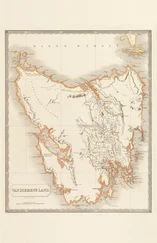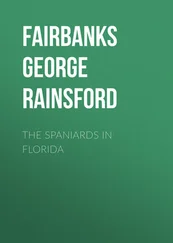Joshua Giddings - The Exiles of Florida
Здесь есть возможность читать онлайн «Joshua Giddings - The Exiles of Florida» — ознакомительный отрывок электронной книги совершенно бесплатно, а после прочтения отрывка купить полную версию. В некоторых случаях можно слушать аудио, скачать через торрент в формате fb2 и присутствует краткое содержание. Жанр: foreign_antique, foreign_prose, на английском языке. Описание произведения, (предисловие) а так же отзывы посетителей доступны на портале библиотеки ЛибКат.
- Название:The Exiles of Florida
- Автор:
- Жанр:
- Год:неизвестен
- ISBN:нет данных
- Рейтинг книги:5 / 5. Голосов: 1
-
Избранное:Добавить в избранное
- Отзывы:
-
Ваша оценка:
- 100
- 1
- 2
- 3
- 4
- 5
The Exiles of Florida: краткое содержание, описание и аннотация
Предлагаем к чтению аннотацию, описание, краткое содержание или предисловие (зависит от того, что написал сам автор книги «The Exiles of Florida»). Если вы не нашли необходимую информацию о книге — напишите в комментариях, мы постараемся отыскать её.
The Exiles of Florida — читать онлайн ознакомительный отрывок
Ниже представлен текст книги, разбитый по страницам. Система сохранения места последней прочитанной страницы, позволяет с удобством читать онлайн бесплатно книгу «The Exiles of Florida», без необходимости каждый раз заново искать на чём Вы остановились. Поставьте закладку, и сможете в любой момент перейти на страницу, на которой закончили чтение.
Интервал:
Закладка:
For more than a year subsequently to the date of this letter, General Gaines made the Exiles a subject of frequent communication to the War Department. In this official correspondence, he at all times spoke of them as “runaways,” “outlaws,” “pirates,” “murderers,” etc.; but in no instance did he charge them with any act hostile to the United States, or to any other people or government.
Of these communications the Exiles were ignorant. They continued in peaceful retirement, cultivating the earth, and gaining a support for themselves and families. In the autumn of 1815, they gathered their crops, provided for the support of the aged and infirm, as well as for their children. They carefully nursed the sick; they buried their dead; they lived in peace, and enjoyed the fruits of their labor. The following spring and summer found them in this enviable condition.
While the Exiles living on the Appalachicola were thus pursuing the even tenor of their ways, plans were ripening among the slaveholders and military officers of our army for their destruction. A correspondence was opened by the Secretary of War with General Jackson, who commanded the Southwestern Military District of the United States, holding his head-quarters at Nashville, Tennessee. Various letters and communications passed between those officers in regard to this “Negro Fort,” as they called it.
Power is never more dangerous than when wielded by military men. They usually feel ambitious to display their own prowess, and that of the troops under their command; and no person can read the communications of General Gaines, in regard to the Exiles who had gathered in and around this fort, without feeling conscious that he greatly desired to give to the people of the United States an example of the science and power by which they could destroy human life. 26 26 Vide the voluminous Correspondence on this subject contained in Ex. Doc. 119, 2d Session, XVth Congress.
At length, on the sixteenth of May, General Jackson wrote General Gaines, saying, “I have little doubt of the fact, that this fort has been established by some villains for the purpose of rapine and plunder, and that it ought to be blown up, regardless of the ground on which it stands; and if your mind shall have formed the same conclusion, destroy it and return the stolen negroes and property to their rightful owners.” 27 27 Perhaps no portion of our national history exhibits such disregard of International law, as this unprovoked invasion of Florida. For thirty years, the slaves of our Southern States have been in the habit of fleeing to the British Provinces. Here they are admitted to all the rights of citizenship, in the same manner as they were in Florida. They vote and hold office under British laws; and when our Government demanded that the English Ministry should disregard the rights of these people and return them to slavery, the British Minister contemptuously refused even to hold correspondence with our Secretary of State on a subject so abhorrent to every principle of national law and self-respect. Our Government coolly submitted to the scornful arrogance of England; but did not hesitate to invade Florida with an armed force, and to seize the faithful subjects of Spain, and enslave them.
Without attempting to criticise this order of General Jackson, we must regard a fort thus situated, at least sixty miles from the border of the United States, as a most singular instrument for the purpose of “rapine,” or plundering our citizens. Nor could General Jackson have entertained any apprehensions from those who occupied the fort. The entire correspondence showed them to be refugees , seeking only to avoid our people; indeed, his very order shows this, for he directs General Gaines to return the “ stolen negroes to their rightful owners.” The use of opprobrious epithets is not often resorted to by men in high official stations: yet it is difficult to believe, that General Jackson supposed these negroes to have been stolen; for, neither in the official correspondence on this subject, nor in the papers accompanying it, embracing more than a hundred documentary pages, is there a hint that these negroes were “ stolen ,” or that they had committed violence upon any person, or upon the property of any person whatever. They had sought their own liberty, and the charge of stealing themselves, was used like the other epithets of “outlaws,” “pirates” and “murderers,” to cast opprobrium upon the character of men who, if judged by their love of liberty or their patriotism, would now occupy a position not less honorable in the history of our country than is assigned to the patriots of 1776.
Nor is it easy to discover the rule of international law, which authorized the Executive of the United States, or the officers of our army, to dictate to the crown of Spain in what part of his territory he should, or should not, erect fortresses; or the constitutional power which they held for invading the territory of a nation at peace with the United States, destroy a fort, and consign its occupants to slavery. But those were days of official arrogance on the one hand, and popular submission on the other. The Exiles, or their ancestors, had once been slaves. They now were cultivating the richest lands in Florida, and possessed wealth; they were occupying a strong fortress. Many slaves during the recent war had escaped from their masters, in Georgia, and some were supposed to be free subjects of Spain, living in Florida; and if the Exiles were permitted to enjoy their plantations and property in peace, it was evident that the institution in adjoining States would be in danger of a total overthrow. These facts were apparent to General Jackson, as well as to General Gaines and the slaveholders of Georgia.
General Gaines only awaited permission from his superior to carry out the designs of the slaveholders, who had become alarmed at the dangers to which their “peculiar institution” was subjected. Upon the receipt of the order above quoted, he detailed Lieut. Col. Clinch, 28 28 Hon. Duncan L. Clinch. He left the service in 1841, and was subsequently a Member of Congress for several years, and died in 1852.
of the regular troops, with his regiment and five hundred friendly Creek Indians, under McIntosh, their principal chief, to carry out the directions of General Jackson. Colonel Clinch was directed to take with him two pieces of artillery, for the purpose of cannonading the fort if necessary. 29 29 War was thus waged against Spain, by Executive authority, without consulting Congress; and no member of that body uttered a protest, or denunciation of the act.
This commencement of the first Seminole war was, at the time, unknown to the people of the United States. It was undertaken for the purposes stated in General Jackson’s order, to “blow up the fort, and return the negroes to their rightful owners .” Historians have failed to expose the cause of hostilities, or the barbarous foray which plunged the nation into that bloody contest which cost the people millions of treasure and the sacrifice of hundreds of human lives.
It was July before the arrangements were fully made by Colonel Clinch and his savage allies for descending the river, with suitable artillery and supplies, to accomplish the object of their mission. 30 30 In Ex. Doc. No. 119, 2d Session, XVth Congress, may be found the official correspondence between the War Department and General Jackson; also that between General Jackson and General Gaines, together with the orders of each, as well as the correspondence between the Secretary of the Navy and Commodore Patterson; and the order of the latter officer to Sailing-Master Loomis; and the final report of Sailing-Master Loomis and General Clinch. In none of these papers is there any act of hostility mentioned or referred to as having been committed by the Exiles, or the Seminole Indians, prior to their reaching the vicinity of the Fort.
The Creeks, having entered into the treaties of New York and Colerain, by which they bound themselves, twenty years previously, to return those Exiles who fled from Georgia, and having failed to perform those stipulations, now cheerfully united with the American army in this first slave-catching expedition undertaken by the Federal Government.
Интервал:
Закладка:
Похожие книги на «The Exiles of Florida»
Представляем Вашему вниманию похожие книги на «The Exiles of Florida» списком для выбора. Мы отобрали схожую по названию и смыслу литературу в надежде предоставить читателям больше вариантов отыскать новые, интересные, ещё непрочитанные произведения.
Обсуждение, отзывы о книге «The Exiles of Florida» и просто собственные мнения читателей. Оставьте ваши комментарии, напишите, что Вы думаете о произведении, его смысле или главных героях. Укажите что конкретно понравилось, а что нет, и почему Вы так считаете.












